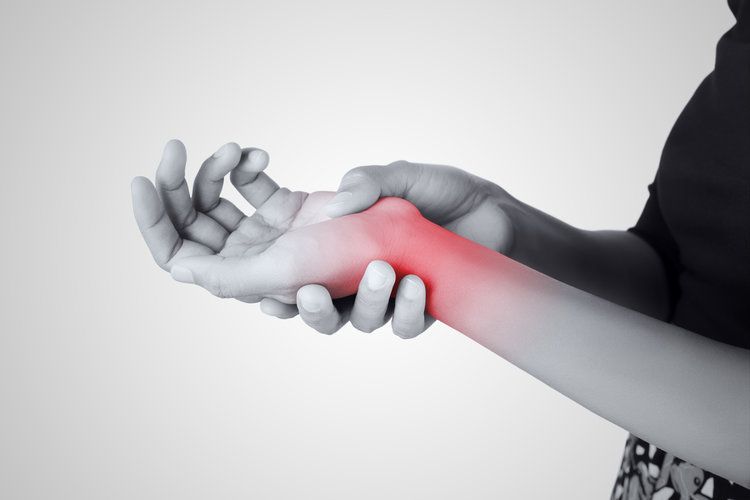De Quervain’s Syndrome
De Quervain's Syndrome, also known as de Quervain's tenosynovitis or de Quervain's disease is a painful condition caused by inflammation of tendons in the wrist and lower thumb. When the swollen tendons rub against the narrow tunnel they pass through, it causes pain at the base of your thumb. The pain migrates up the wrist and into the forearm.
It gets worse with thumb movement or grip. It is especially bothersome when trying to open large-mouth jars such as pickle jars. If left untreated, even simple actions such as lifting a coffee mug or peeling vegetables may become impossible. The pain is crescendo in nature often preventing the ability to continue to hold the object.
Cause
It is difficult to determine the exact cause of De Quervain's Syndrome and the source of the problem is often unknown, but amongst the most probable culprits wrist doctors identify are:
Overuse
Hobbies like gardening or racket sports
Acute injury to the thumb
Online gaming
Inflammatory conditions like rheumatoid arthritis
Repetitive workplace tasks
Postpartum repetitive tasks/thumb movements
Symptoms
Pain at the base of the thumb and along the wrist are the main symptoms of De Quervain's tenosynovitis. The pain may migrate up the forearm, especially during movements that engage the thumb and wrist, such as grasping. Other symptoms include swelling along the thumb-side of the wrist, numbness along the back of the thumb and index finger. A fluid-filled cyst, even though not as common, may occur in some cases.
Diagnosis
To be able to correctly diagnose this condition, the wrist doctor must know the history and perform a physical exam. Both are crucial because several other conditions may display almost identical symptoms.
During the physical exam, the wrist doctorchecks for pain at the base of the thumb while the patient performs various hand and thumb movements. The most common test to diagnose for De Quervain's Syndrome is called the Finkelstein maneuver.The doctor asks the patient to close fingers over the thumb, making a fist and then to bend/push the whole fist toward the little finger. This movement can be very painful for people who have de Quervain's tenosynovitis. X-ray is rarely required because the Finkelstein maneuver is in most cases sufficient to correctly diagnose this condition.
Treatment
Conservative treatment usually begins with splinting the wrist and thumb.
Note: a carpal tunnel splint does NOT adequately immobilize the thumb.
Non-steroidal anti-inflammatory drugs (NSAIDs) are used to reduce inflammation. On occasion, your wrist doctor or orthopedic surgeon may inject a steroid solution into the first dorsal compartment.
If symptoms persist, the doctor may recommend a surgical procedure. In this 10-minute procedure, the roof of the tunnel is released, allowing the tendons to glide freely. A splint is applied that allows movement at the tip of the thumb to keep the tendons gliding.
Usually, the patient returns to full activities in two weeks post-operatively.

Trivia
Fritz de Quervainwas a distinguished Swiss surgeon and a Professor of Surgery at Berne, Switzerland. After his surgical training, he settled in the watch-making district of La Chaux-de-Fonds. He worked extensively on thyroid diseases and became a leading authority in this domain. He is responsible for introducing iodized table salt to help prevent goiter. Before his discovery, the tenosynovitis syndrome was thought to be caused by tuberculosis.
Consult our wrist doctor today!
If you think you may be suffering from de Quervain's syndrome, do not hesitate to schedule a consultation with one of our excellent wrist doctors. You will be guided right from assessment and diagnosis to treatment and rehabilitation, to ensure your full recovery. Our specialists are available at five convenient locations:
Reach out to our friendly staff, who will be more than happy to assist you:
Phone: 770-427-5717
Fax: 770-429-8520
Visit us at 300 Tower Road, Suite 101, Marietta, GA 30060
Get in touch through our contact page
The material contained on this site is for informational purposes only and DOES NOT CONSTITUTE THE PROVIDING OF MEDICAL ADVICE, and is not intended to be a substitute for independent professional medical judgment, advice, diagnosis, or treatment. Always seek the advice of your physician or other qualified healthcare providers with any questions or concerns you may have regarding your health.
